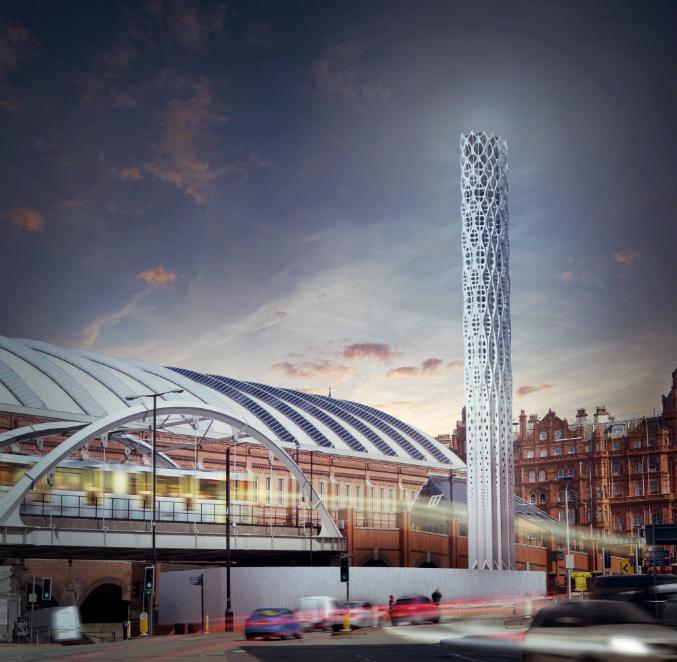Manchester City Council’s Executive is to consider a proposal to create a new company, which would run the city’s low-carbon Civic Quarter Heat Network project.
The Civic Quarter Heat Network (CQHN) will operate for at least 30 years and will reduce the city’s carbon dioxide emissions by more than 3,500 tonnes per year.
It will improve air quality by reducing industrial emissions, while creating future revenue for the council through the sale of low-carbon energy to city centre customers.
A report to be considered on Wednesday 10 January recommends that the Executive endorse a proposal to create a council-owned company, which would be responsible for operating and managing the CQHN.
The new company would control two subsidiaries – CouncilCo, which would provide supplies and services directly to the council and TradeCo, which would undertake commercial activity, providing services and supplies to third parties.
The board of the proposed company would be led by an appropriately qualified independent Chair. It is forecast that over the duration of the CQHN’s 30-year business plan, the company will generate a surplus from its trading activity.
Pending Executive endorsement, officers will finalise a business case for the new company, for formal approval in March 2018.
The CQHN scheme will see the creation of a low-carbon energy centre and district heating network, initially connecting iconic Manchester buildings such as Manchester Town Hall Extension, Central Library, Manchester Art Gallery, Manchester Central Convention Centre and The Bridgewater Hall.
The energy centre will be situated within the external car parking area of Manchester Central Convention Complex and includes a 40m flue, designed by award-winning architects Tonkin Liu.
The CQHN will provide reliable supplies of low-carbon heat and power and will be the first modern heat network in Manchester. The project is expected to act as a trailblazer for other such environmentally friendly initiatives.
66 per cent of the council’s direct carbon emissions currently come from energy consumed within its operational buildings and the CQHN will play a key role in reducing these emissions.
Vital Energi are the council’s partner for the project and are entering into a 30 year energy performance contract with the council, which will see them take on maintenance responsibilities and guarantee the project’s carbon savings.
Executive Member for the Environment and Skills, Councillor Angeliki Stogia, said: “The Civic Quarter Heat Network will help to improve the quality of the environment in our city centre, reducing energy costs for residents, creating new jobs and significantly contributing towards our carbon reduction targets. This project will help Manchester as it makes the transition to the low-carbon economy of the future.”







